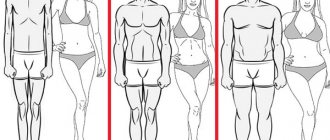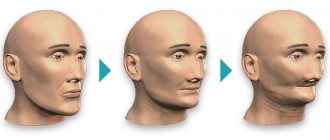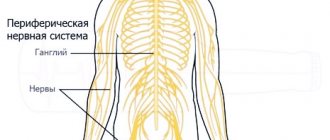What are character accentuations?
accentuation is , you first need to analyze the meaning of the word “ character ”. Typically, the term “character” is understood by psychologists as a set of stable personality traits that leave an imprint on behavior, relationships with people and oneself. Character is reflected in the entire life activity of an individual, the choice of contacts, giving behavior an individual shade . Character accentuation is the personality traits that are most expressed in a person. Scientists all over the world are studying accentuation due to the fact that when a character trait is excessively manifested, it is possible to create conditions favorable for the formation of mental disorders. To find accentuations, Leongard created a questionnaire that determines an individual’s accentuations.
The presence of certain accentuations does not mean going beyond the limits of normality , but sometimes it can become a factor that interferes with the normal construction of interpersonal relationships.
Each type of accentuation has “ weak points” that are most susceptible to injury under the influence of negative factors. Repeated trauma of this kind leads to deviant behavior.
Characteristic typical reactions
Each type of accentuation has its own way of emotional response. A study was conducted that allowed us to determine the following patterns:
- The hyperthymic type uses positive refocusing, positive reappraisal, and focusing on planning.
- The stuck type tends to blame others when failures occur.
- The emotive type resorts to self-blame and rumination.
- The anxious type chooses to ruminate, catastrophize, and blame others.
- The cycloid type resorts to rumination.
- The demonstrative type chooses positive refocusing.
- The dysthymic type chooses rumination and catastrophizing.
- Other types do not have pronounced stereotypical ways of experiencing negative situations.
I will definitely tell you more about the methods of emotional response (types of behavior in a negative situation) in another article.
Types of character accentuation according to K. Leonhard
The author identifies three groups of character accentuation, differing in origin.
- as character (socially determined education);
- temperament (natural formation) included hyperthymic, dysthymic, cycloid, exalted, anxious and emotive types;
- At the personal level there were two types – extra- and introverted.
Four types of character according to Leonard
Let's move on to the first group, which contains four types depending on society: demonstrative, pedantic, stuck, excitable. That is, these are four types of character. I note that in the headings I indicated the names in brackets - these are the names of the extreme forms, i.e. if this type is strongly expressed, then it is called this way. In the process of describing the types, I used these two concepts, which differ in “degree of severity,” as synonyms, which is probably incorrect. Although Karl Leonhard himself willingly replaced them interchangeably, at the same time, their interchangeability created contradictions in his own judgments.
Demonstrative type
A characteristic feature of this accentuation is demonstrative behavior , emotional liveliness, and artistry . Such people have a craving for fantasizing , lying and pretense, usually this is not due to the presence of malicious intent, they like to embellish their own personality in the eyes of others. They strive to be the center of attention and love praise and attention . This type of accentuation is characterized by rapid adaptation to new conditions and emotional mobility. They are inconsistent in their actions, one day they will confirm and agree with your point of view, and on the next they will completely sincerely say the opposite opinion.
Affectively labile (cyclothymic) personalities
With pronounced accentuation, this type is called cyclothymic. Labile – in the context of the note: mobile, unstable. This temperament combines the previous two. Affectively labile individuals are characterized by a change of state from one extreme to the other, i.e. from hyperthymic to dysthymic position and vice versa. Sometimes such a change in mood is spontaneous, which is worth taking into account. A good mood can make you want to chat, while sad events can make you feel depressed and slow in your thinking.
Cyclothymic individuals in a cheerful society can be the center of attention and play to the public, but in a serious circle of people they are likely to withdraw into themselves.
Karl Leonhard refutes the idea that the hereditary combination of hyperthymic and dysthymic temperament results in an affectively labile personality. With such compatibility, it is more likely to obtain a syntonic (consonant, coordinated) temperament, which is characterized by calmness and evenness of mood. “This observation is of interest primarily for those who are inclined to see something fundamentally negative in psychopathy (mental disorder). – Karl Leonhard finishes his thought. “Meanwhile, two psychopathy, put together, can result in normality.”
Pedantic type
These people try to think through all possible options for action and behavior, so they cannot make an exact decision for a long time. Before doing something, they want to be completely sure that this is the best way out of a problem situation. Pedants take everything in life seriously , this can be both work issues and everyday issues. People around them may perceive this character trait with dissatisfaction and consider them boring and boring. They are distinguished by excellent perseverance ; they always bring what they plan to completion . People of the pedantic type are not ready for radical changes in their lives; they have difficulty surviving traumatic events, which can make them indecisive. They do not like to participate in conflicts and try by all means to avoid them.
Stuck type
Personalities of this type of accentuation are characterized by a long-term influence of affects , short-term strong experiences. They tend to get stuck on certain thoughts and feelings. Most often this is self-esteem, hurt pride, injured pride. the boundaries of social justice for themselves , deciding what is “good” and “bad”; if the real situation does not correspond to the ideal one, they suffer. cannot forget grievances over a long period of time and are prone to conflict situations with people who once offended them. They have a clear division of people into friends and enemies; even with a slight offense, they can classify the offender into the second category. Often vindictive and suspicious. They don’t let go of the grudge, and I constantly think that they were treated unfairly . They often show jealousy. When achieving a goal, they show persistence , thanks to this they make strict demands on themselves and others. They are not used to listening to advice; they have their own opinion on any issue.
Conformal
They live by the principle “live like everyone else and think like others.” As the name suggests, character accentuation. It is extremely difficult to detect in adolescents, since many personality types, including independent-minded ones, are prone to conformism in the early years. To accurately determine and resolve the issue, you need to consult a psychologist. There are several features of this type of character accentuation. In short:
Reluctance to stand out from the crowd. Such people think like everyone else. This is more likely due to the desire to be like everyone else, rather than the lack of one’s own opinion. Although over the years a person gets so accustomed to the role of a biorobot that he actually loses his independence of thinking. In extreme cases, such emphasis leads to fanaticism, including religious fanaticism. Mania and other pathological conditions are possible.
Dependence on other people's opinions. Conformists are extremely dependent on other people's opinions. They strive to earn the praise and approval of others. Their hobbies and lifestyle depend entirely or mainly on their environment. Alcoholics? This means that the conformist will drink too. Religious people? This means the patient will also be religious. And everything like that.
Difficulty lifting. Reluctance to change anything. Problems when you lose your close circle or have to do something new, move to another place.
Low conflict. People of this type are not inclined to conflict. They are more likely to agree with others so as not to stir up abuse, but will not defend their point of view. Especially in a violent way. As, for example, epileptoids do this.
Friendliness.
High expectations, romanticism, vulnerability.
Discipline. Willingness to work and obey. These are helpful people.
The main thing about conformists is their diligence, devotion and discipline. With proper training, they become excellent workers in many areas. Including where you need to communicate with people.
Excitable type
They are characterized by increased impulsiveness , low control of their own desires and inclinations, which are often led. Uncontrollable during violent emotional reactions .
Instinctiveness is characteristic : they do not take into account the voice of reason and sanity, they are subject to momentary desires and desires, without thinking about the consequences.
They often show irritability and intolerance towards their surroundings and cannot tolerate criticism . To people with this accentuation, study and work seem neither fun nor attractive. They usually do not set long-term and difficult-to-achieve goals and live in the present . It is difficult for them to get along in a team due to frequent conflicts. During them, they may show inappropriate emotional reactions, react violently and spend a long time sorting things out.
Schizoid type
Like other premorbid personality types according to Lichko, it is characterized by an increased risk of transformation into psychopathy. Included in Lichko’s typology of character accentuations as a variant of the clinical norm. But often this accentuation turns into a personality disorder. Schizoids are characterized by a group of properties.
Closedness. As a rule, a schizoid is a modern hermit. People with such accentuation do not know how to build close relationships. Most often, they do not want to, since the characteristics of mental activity are directed inward to the individual. The external attributes of life, be it relationships, work, interest them much less. If you're interested at all.
Rich inner world. However, the schizoid does not allow anyone there. Occasionally, only the closest people - friends or partner - receive such an honor.
Reluctance to establish social contacts. It is not only inability, but also reluctance that makes a schizoid who he is. Patients of this kind are excellent at establishing distant, business-like relationships, where everything is defined by role. For example, a teacher-student or an employee-boss. In other, average and especially close relationships, serious problems arise.
Lack of empathy. People with schizoid character accentuation lack understanding of the emotions of others. They also do not understand hidden gestures and the hidden meaning of what is said. Therefore, problems arise in personal life and informal communication. A schizoid prefers to be told about everything directly, without hints.
Developed intelligence. Quite often, but not always. Allows you to work productively in a variety of fields, be it science or other types of activity. Schizoids often achieve success in the field of art and artistic activity.
Thinking outside the box.
Schizoids are rather closed people. However, they are distinguished by loyalty and devotion. Non-standard thinking and, as a rule, a high level of intelligence.
Hyperthymic type
They are cheerful , cheerful and energetic. They attract others with their inexhaustible optimism , generosity and responsiveness . They take on leading positions and love big companies. It is easy to find a common language with them; they are distinguished by pronounced gestures and pronounced facial expressions . Hyperthyms always want to do something ; they do not tend to spend time passively. They find it difficult to endure monotonous activities and strict discipline. They can’t complete a task, if it becomes uninteresting , they quit halfway.
Dysthymic type
Representatives of this type of accentuation look too serious , they are often characterized by a depressed mood . Constant negative experiences, lack of joyful feelings, anticipation of troubles limit their activity. They are characterized by a solitary lifestyle , they feel out of place in a large company, and they have few friends. They feel relaxed only in small companies with people they trust. They urgently need acceptance and understanding , love and friendship. They tend to fall into a depressed state; positive and joyful events change their mood only for a short period of time. They are often haunted by an unreasonable feeling of guilt , the future seems gloomy and foggy.
Always ready to help, reliable, conscientious . These are people you can rely on and not be afraid that secrets will be discussed.
They do the work at a slow pace , but efficiently and scrupulously.
What general (close) types of character accentuations are distinguished by K. Leongard and A.E. Lichko?
Character accentuations are extreme variants of the norm, in which certain character traits are excessively strengthened, as a result of which selective vulnerability to a certain kind of psychogenic influence is revealed with good and even increased resistance to others.
To compare the two typologies of K. Leonhard and A.E. Lichko, it should be noted that Leonhard’s typology is based on the diagnosis of adults, and Lichko’s typology is based on adolescents. You can find a lot in common between the types identified by both authors, but in this question we will consider three pairs of similar types.
EMOTIVE (LEONGARD) – LABILE (PERSONAL)
Emotive type. These people prefer to communicate in a narrow circle of select people with whom they establish good contacts and whom they understand “at a glance.” They rarely enter into conflicts themselves, playing a passive role in them. They carry grievances within themselves without “splashing” out.
+: kindness, compassion, heightened sense of duty, diligence.
-: excessive sensitivity, tearfulness.
Labile type. This type is characterized by extreme mood variability, and it is often unpredictable. The reasons for an unexpected change in mood can be the most insignificant, for example, someone accidentally dropped a word, someone’s unfriendly look. All of them are capable of sinking into despondency and a gloomy mood in the absence of any serious troubles or failures. The behavior of these teenagers depends on the momentary mood. The present and future, depending on the mood, can be perceived either in light or in dark tones. Such teenagers, being in a depressed mood, are in dire need of help and support from those who can improve their mood, who can distract them and cheer them up. They understand and feel the attitude of the people around them well.
DEMONSTRATIVE (LEONGARD) – HYSTEROID (PERSONAL)
Demonstrative (accentuation of repression) type. This type of accentuation is characterized by the ease of establishing contacts, the desire for leadership, the thirst for power and praise. Such a person demonstrates high adaptability to people and at the same time a tendency to intrigue (with an externally soft manner of communication). They irritate others with their self-confidence and high claims, systematically provoke conflicts themselves, but at the same time actively defend themselves.
+: courtesy, artistry, ability to captivate others, originality of thinking and actions.
-: selfishness, hypocrisy, boasting, shirking from work.
Hysterical (demonstrative) type. The main feature of this type is egocentrism, a thirst for constant attention to one’s own person. Adolescents of this type often have a tendency toward theatricality, posing, and panache. Such children have great difficulty in enduring when in their presence someone praises their friend, when others are given more attention than themselves. For them, an urgent need is the desire to attract the attention of others, to listen to admiration and praise addressed to them. These teenagers are characterized by claims to an exclusive position among their peers, and in order to influence others and attract their attention, they often act in groups as instigators and ringleaders. At the same time, being unable to become real leaders and organizers of the cause, or to gain informal authority, they often and quickly fail.
PEDANTIC (LEONGARD) – PSYCHASTENIC (PERSONAL)
Pedantic (rigid) type. A person with this type of accentuation rarely enters into conflicts, acting as a passive rather than an active party in them. In his service, he behaves like a bureaucrat, making many formal demands on those around him. At the same time, he willingly cedes leadership to other people. Sometimes he torments his family with excessive claims to neatness.
+: conscientiousness, accuracy, seriousness, reliability in business,
-: formalism, boringness, grumbling.
Psychasthenic (anxious and suspicious) type. Such adolescents are characterized by accelerated and early intellectual development, a tendency to think and reason, to introspect and evaluate the behavior of other people. However, they are often stronger in words than in deeds. Their self-confidence is combined with indecision, and categorical judgments are combined with haste in actions taken precisely at those moments when caution and prudence are required.
The following is a drawing comparing the types of accentuation of the two typologies of the authors under consideration.
Figure 1 – Correspondence of types of accentuations according to K.Leonhard and A.E.Lichko
Cyclothymic type
Personalities of this type are characterized by wave-like changes in mood and behavior. During joyful events, they experience vivid emotions and feel a surge of activity. Some sad events turn them into inhibited and depressed, lacking initiative. These emotional states can change several times a day, depending on the energy felt. You can notice fluctuations during opposite states; during moments of recovery, they awaken a desire to communicate, self-confidence and openness. When they are depressed, they want solitude and are unsure of themselves.
Cycloid
In some respects, cycloids are similar to labile patients. However, the change in mood among the former is much more pronounced. In their development, mood and emotional background go through two phases:
- Hyperthymic. At this time the mood is elevated, even too high.
- In the second phase, subdepression is observed. Decreased emotional background.
In this respect, cycloid people are similar to patients with manic-depressive psychosis. But accentuation is not a disease. This is a premorbid state of personality. By the way, these patients are more likely to develop bipolar affective disorder. Although there is no 100% correlation.
Among the characteristic features of accentuation:
- Sudden mood changes. They may be perceived as characteristics of an unbalanced personality, which is actually not the case. Each phase, be it subdepression or hyperthymia, lasts for several weeks. Then they are replaced by reverse features.
- Excitability. Increased excitability is typical for the hyperthymic phase. A person at this time is active, energetic, ready to move mountains almost literally. Efficiency is off the charts.
- Friendliness and increased sociability in the hyperthymic phase. In this respect, the patient is similar to classic hyperthymic.
- Irritability. Develops against the background of the subdepressive stage of emotional development. At this time, it is better not to touch the person, since biased criticism and conflicts are possible.
- Aggressiveness. Depending on the type of character, it can turn into physical violence. Or, at a minimum, attempts to protect yourself from uncomfortable communication.
- Increased tearfulness.
The cycloid type is active in the hyperthymic phase. It is at this time that he is most active. In some cases, mood changes do not come for months.
Exalted type
Such people are characterized by a wide range of emotional states and have a strong reaction to external stimuli. They are easily able to experience a strong feeling of joy , ecstasy, from a not very significant incident; a small failure and sadness can lead to a state of universal sorrow. They clearly express emotions with complete sincerity and are characterized by frequent mood swings. Motivation for activity is very often based on internal motivations . They are distinguished by their amorous nature, they strive to expand the number of contacts to increase the number of emotions. They demonstrate themselves in creative activities and choose professions related to creativity. An attractive trait is the ability to sincerely empathize . There are also repulsive features - increased anxiety, restlessness and excitement.
Anxious type
They are subject to anxiety and fears for various reasons. Unsure of thoughts and decisions. They sense danger around them and are worried for no particular reason. For a long time they tend to experience failures, are afraid of making a mistake and choosing the wrong decision, and are indecisive. During a dispute, they can hardly defend their positions; it is easier for them to silently agree with someone else’s point of view.
They are distinguished by commitment and diligence , they are characterized by a high level of responsibility and self-criticism .
Very often they cannot withstand external conditions and feel exhausted and cannot withstand stress factors. They feel insecure being the center of attention when speaking in front of an audience. They do not start conflicts and try to avoid them.
Emotive type
They are distinguished by increased sensuality , they are characterized by deep sensory experiences and increased emotionality. Unlike exalted individuals, they do not express their feelings externally, but accumulate them. They experience deep feelings from various life experiences , both positive and negative. They avoid conflict situations and are not prone to showdowns. They try to contain within themselves , but they do not always succeed, they are whiny and sensitive . They are characterized by responsiveness and empathy , not only for close people, but also for fictional characters in literature and films. The rudeness of others provokes stress and can lead to emotional turmoil.
Extroverted and introverted type
K. Leongard divided these types according to different perceptions of information and reactions to what is happening. It is common for extroverts vividly perceive the surrounding reality, while introverts are more oriented inward and partially ignore external reality. Extroverts can succumb to the influence of others ; in this regard, an introvert is a stronger and more strong-willed person. Introverts have a narrow circle of acquaintances, they have few friends, and they do not occupy leading positions in the team. They do not like interference in their lives and try to focus on their inner voice. They try to the last to follow their inner beliefs and principles . Extroverts easily adapt to changing living conditions, easily make new friends and have a wide social circle. Open to everything unknown . They can change their own beliefs to achieve goals , they can deviate from their own principles for the sake of others. Each person, depending on the situation, may exhibit several types of accentuation simultaneously . By using positive traits and skillfully leveling out negative ones, you can benefit from your character traits. Analyzing the character traits of your interlocutor can help direct the dialogue in the right direction and avoid awkward moments.
Sensitive
Unusual accentuation. Its defining features are:
Impressionability. Even an event that is minimal by the standards of others can leave an indelible mark on the personality and consciousness of such an individual. In this, sensitive accentuation is similar to stuck according to Leonard. Memories, especially unpleasant ones, can persist for many years and flash back to the memory with intensity, as if it had just happened.
Vulnerability. Increased sensitivity to criticism, especially public criticism. In this respect, sensitives are very similar to hysteroids. Their main fear is being ridiculed. By the way, due to their vulnerability and daydreaming, such people often become the subject of ridicule and bullying, mainly in their teenage years.
A penchant for aesthetic contemplation. Sensitive people get pleasure from good music, haute cuisine, beautiful paintings and the like. They are mainly interested in lofty matters.
Increased morality. Conscientiousness. In a system with empathy, these traits allow the sensitive to achieve success in the fields of art, science, and social activities.
Openness. Sincerity in communication and relationships. Also loyalty and devotion to friends and partner.
Compassion. Willingness to help anyone and everyone. Unfortunately, sensitives do not always understand people accurately. Therefore, it is possible to help those who are not worthy of it.
Tendency for social recognition. Despite all that has been said, sensitive individuals are not without certain ambitions. They strive to do things that will bring not only benefit, but also recognition. For example, scientific or artistic activities, depending on interests.
Sensitive accentuation is partly similar to labile accentuation. With the difference that the described type of character accentuation is less adapted to life and tolerates criticism and attacks from others less well.










